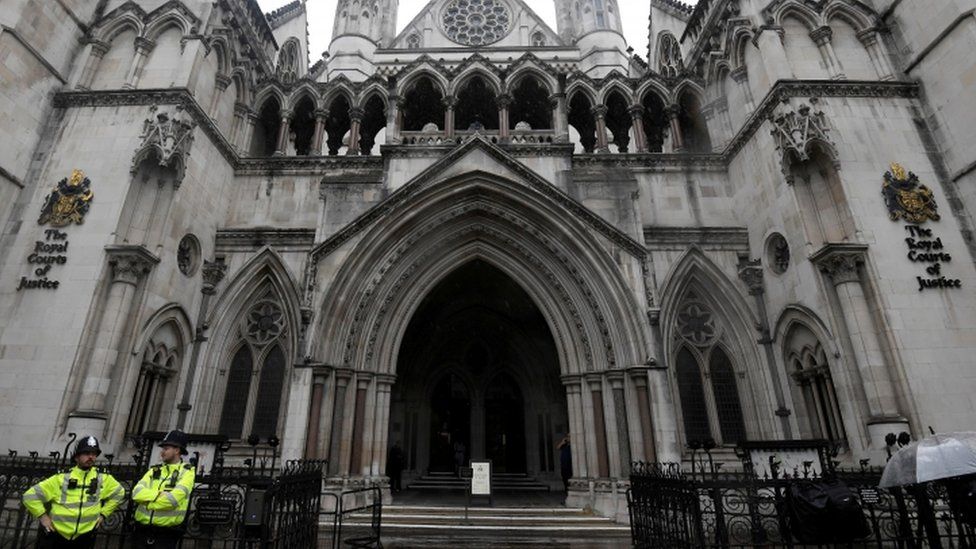Hidden rape conviction target revealed
- Published

Rape prosecutors in England and Wales were given a conviction rate target which was never made public.
BBC Newsnight has had access to a Law Society Gazette investigation, which found that from 2016 prosecutors were judged against a 60% target of cases ending in conviction.
This may have caused prosecutors to drop weaker cases, campaigners say.
The Crown Prosecution Service (CPS) said the target was used for "benchmarking" - and has been dropped.
The CPS decides whether cases investigated by the police go to trial.
Rape convictions in England and Wales are at their lowest level since 2008, despite record levels of allegations.
According to guidance set down in the Code for Crown Prosecutors, decisions should be based on two things: whether it's in the public interest, and if the case has more than a 50% chance of a conviction.
But from 2016, rape prosecutors were also asked to consider a conviction rate target called a "level of ambition" of 60%.
One way to achieve improved conviction rates is by prosecuting only the strongest cases.
If 10 rape cases are prosecuted and five of them result in convictions, the conviction rate is 50%. But if only the strongest three cases are prosecuted and all three result in convictions, the conviction rate goes up to 100% - but fewer rapists have been brought to justice.
The 60% rape conviction rate target was never made public by the CPS, but was discovered by the Law Society Gazette after a trawl through CPS inspection reports.
In one such report, inspectors criticised the Cheshire-Merseyside regional CPS for missing the target in 2017. Their conviction rate was 57.3%, down from 65.4% the previous year, but their actual number of rape convictions had gone up from 100 to 138 in the same period.
The following year, the same team introduced a "more stringent triage process for police files" on rape.
Their number of convictions dropped to 81 - the lowest for years - but by prosecuting fewer cases they actually exceeded the CPS target. Their conviction rate was 68%.
Newsnight has also spoken to a source who attended a training session for specialist rape prosecutors in 2017.
The source said senior CPS lawyers told prosecutors that the CPS would like to see conviction rates of 61% or 62% for rape cases.
A coalition of women's organisations, represented by the Centre for Women's Justice (CWJ), has launched a legal case against the service for what it says is an unlawful change in approach by the CPS.
Lawyer Harriet Wistrich, founder of the CWJ, told Newsnight: "What a change in the conviction rate would suggest is if they're being targeted to improve their convictions, the easiest way to do that is to take weaker cases out of the system.
"If those that rape are not being held to account, they will feel they can continue doing so with impunity."
In response to the investigation, the CPS said it had stopped using "conviction levels of ambition" in April 2018.
"We acknowledged they were not an appropriate tool to measure our success in bringing the right cases to court," a spokesman said.
The CPS has repeatedly denied any change in policy on rape that might account for the collapse in prosecutions.
"We are clear that all our cases should be assessed on whether there is a realistic prospect of conviction based on individual merit - no other reason," the spokesman added.
Conviction rate targets were not only applied to rape.
A 75% target was applied to domestic violence cases, while the target for hate crime cases was an 85% level of conviction. An 85% conviction rate target was also applied to all magistrate court cases, with those in the Crown Court subject to a slightly lower level, 81.5%.
A CPS spokesman said: "While it is important that we track trends, and constantly strive to improve performance, no individual charging decision is influenced by any factor other than the merits of the case."
- Published27 May 2022